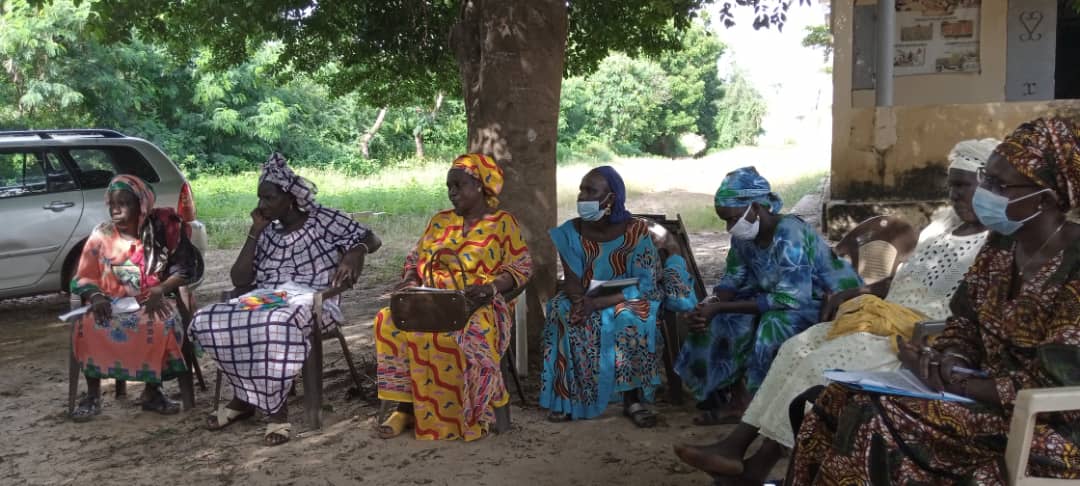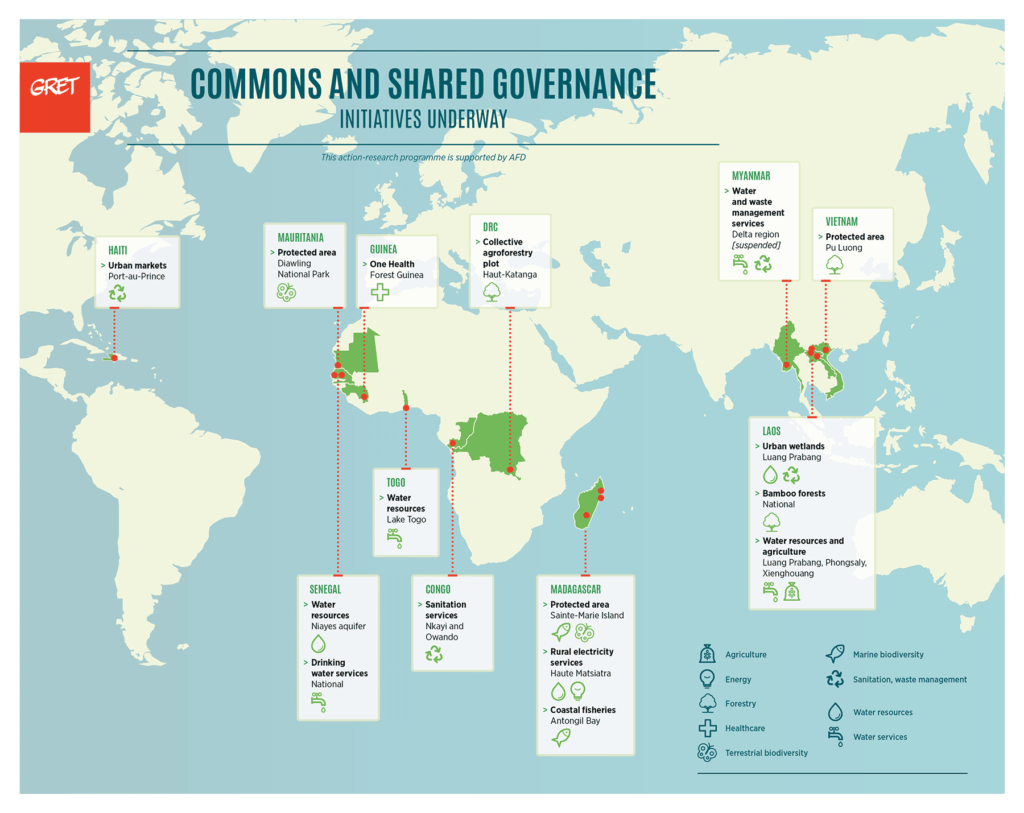
Since 2019, GRET has been conducting an action-research programme on the commons with fifteen projects supporting shared governance of territories, essential services and natural resources. The objective is to test alternatives to current modes of governance in order to propose better solutions to address the challenges of social justice and ecological transition.
For GRET, a common is primarily related to a dynamic. It is the way in which a group of individuals (citizens, businesses, public authorities) become collectively organised to preserve tangible or intangible goods on which they depend. These goods can be a natural resource (groundwater, the fish in a river, a forest), a territory, or a service (electricity, waste management, drinking water).
Around these common goods, individuals have different short-term interests. The challenge is to generate dialogue, to enable each person to play a real role in decision-making; to ensure that, together, these stakeholders define and develop rules around the resource or the service. This must enable its preservation over the long term, and guarantee immediate fair access to it for all.
Fresh water, oceans and forests are major pools of biodiversity. They regulate the climate and enable millions of people to make a living. However, they are becoming increasingly scarce and deteriorating due to the impact of climate change and human pressure. Conflicts between users are worsening and numerous species are in danger. Public and private management models have proved too limited to solve these problems.
Given this dual ecological and social emergency, GRET is promoting co-constructed transformation based on the commons. The objective is to ensure fair access to essential services and resources while at the same time preserving them for future generations. Citizens, communities, businesses and public stakeholders must work together to define rules for fair, sustainable management of natural resources.
The programme combines concrete actions, research and advocacy via fifteen action situations. The success of this programme relies on the diversity of field projects and consideration of lessons learned from each experience, making it possible to develop tried and tested methods, and to disseminate these among a broad community of decision-makers and local stakeholders. Populations, public authorities and private stakeholders are fully committed to supporting and preserving the commons.

The “Carnets faire commun” collection is a series of brief, easy-to-read publications sharing the lessons learned from concrete actions conducted by GRET. It aims to enrich the reflections and references of practitioners and policy-makers working to promote forms of social organisation and shared governance “in common”.
More information on the program’s projects:
Support the “Balancing the Commons” campaign
To implement this ambitious programme, GRET needs the support of donors. To this end, it is running a fundraising campaign named ” Balancing the Commons ” and chaired by Jean-Louis Bancel.
For more information on how you can contribute to this campaign, please consult the dedicated page or contact Agathe Cousin, GRET’s Private Partnerships Manager.